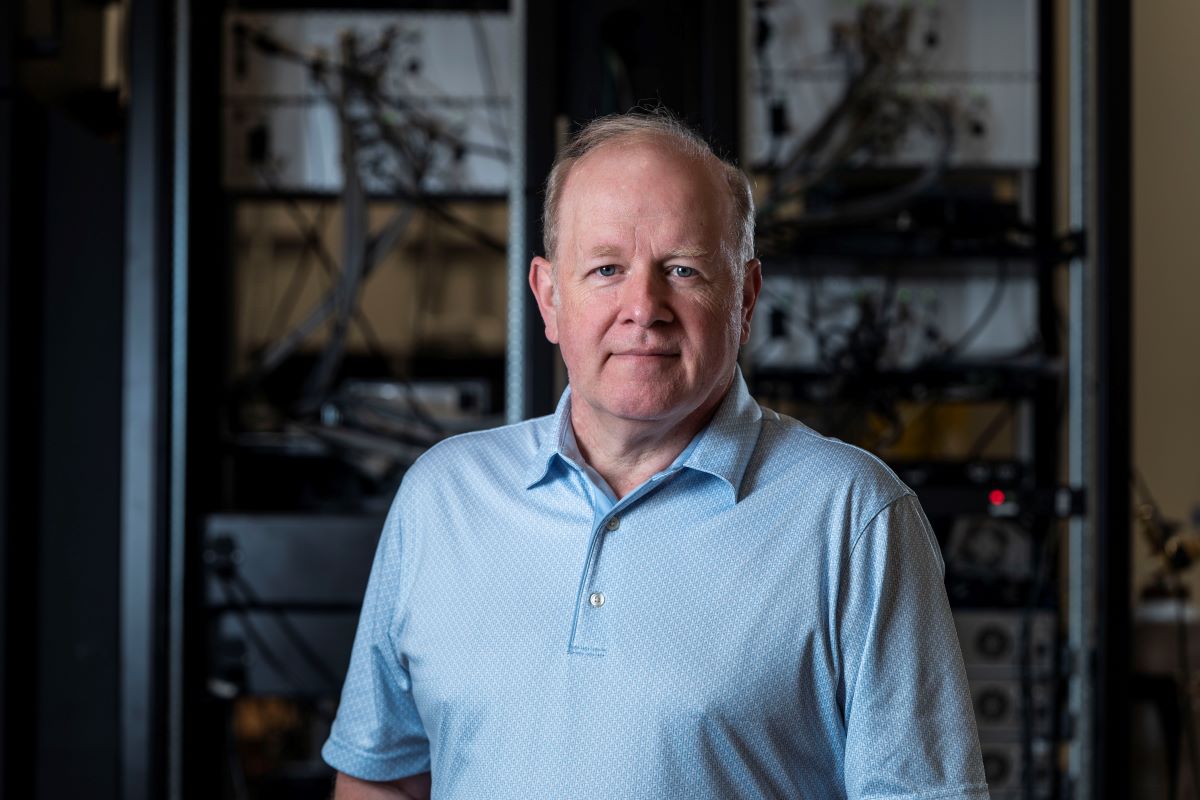Maryland’s IonQ just inked a $25 million deal to build two barium-based ion quantum computers for the Air Force Research Lab (AFRL).
The computers primarily will be used for developing quantum networks and apps, not computation. IonQ will deliver and set up systems in Rome, New York through the new contract.
This deal follows the $13.4 million deal that the pair signed last year, which gave AFRL access to IonQ’s trapped ion systems.
So far, CEO Peter Chapman said, IonQ has largely been funded by private enterprise. Until now, he said, the company’s largest contract was last year’s AFRL contract. Before that, IonQ wasn’t even in six figures of government deals. He’s hopeful this new deal can be the start of more government collaboration.
“It’s the beginning of what is it that we think quantum computing could do, and one of those things is quantum networking, especially in a military setting,” Chapman told Technical.ly.
For Chapman, this deal is part of a trend that’s moving away from quantum investments purely in research and resulting in a scientific paper. Now, he said, there’s a movement to invest funds into something physical — a system that can actually be used at the end. This push to “invest more intelligently,” he added, is happening all over the world.
“AFRL is seeing incredible achievements on trapped ion quantum systems to enable and grow US quantum technology, the innovation occurring on the frontlines by industry will bring revolutionary technologies to our warfighters,” said Michael Hayduk, deputy director at AFRL, in a written company statement announcing the news.
In Q2 of 2023, IonQ nabbed $28 million in bookings — a new record. This deal comes right after another contract the company signed with QuantumBasel, based in Switzerland, to establish a quantum data center in Europe. IonQ also helped build the University of Maryland’s new QLab.
Going forward, Chapman said, IonQ has a few goals to expand the capacity of its quantum computers. The company will also look to do more government contracts and pursue work in the commercial sector, which Chapman said has had quite a bit of interest in the technology.
“At this point, I think quantum is going to be important,” Chapman said.
Before you go...
Please consider supporting Technical.ly to keep our independent journalism strong. Unlike most business-focused media outlets, we don’t have a paywall. Instead, we count on your personal and organizational support.
Join our growing Slack community
Join 5,000 tech professionals and entrepreneurs in our community Slack today!

Entrepreneurship is changing, and so is the economic development behind it

Tech Hubs’ new $210M funding leaves Baltimore and Philly off the table

Here’s what to know before using AI to craft your brand’s social media posts



